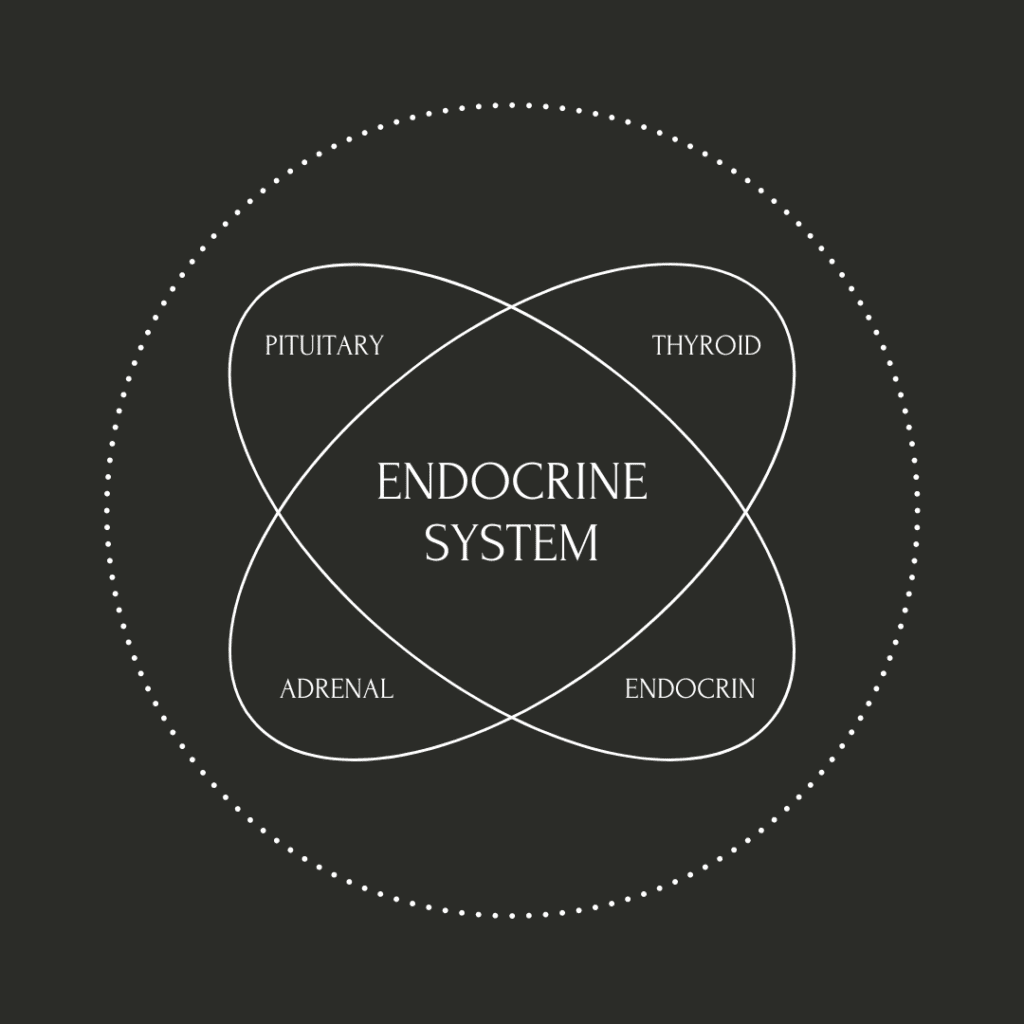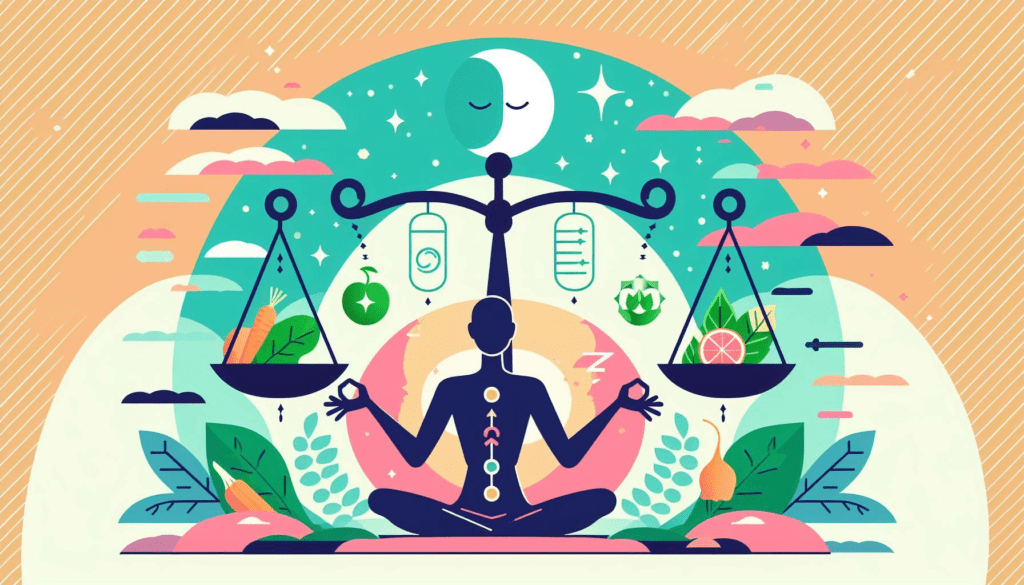Hormones 101

We've all heard of hormones, at least, I hope that you've heard of hormones. If you haven't, you're in the right place. We feel like we know what hormones are and what they do, the hormone basics, but do we...really?
Hormones are chemical messengers that play a crucial role in regulating various bodily functions. They are produced by the endocrine system, a network of glands that work together to maintain balance in the body. Understanding hormone basics is essential for maintaining overall health and well-being. Let's cover the fundamentals of hormones and their role in the body.
The Endocrine System
The endocrine system is made up of several glands, including the pituitary, thyroid, adrenal, and pancreas. These glands produce hormones that are released into the bloodstream and travel to different parts of the body, where they regulate various functions. The endocrine system works closely with the nervous system to maintain balance and respond to changes in the environment.
One of the key components of the endocrine system is the pituitary gland, often referred to as the "master gland." Located at the base of the brain, this small but mighty gland produces and releases hormones that control other glands in the body. It also plays a role in growth, metabolism, and reproduction.
The thyroid gland, located in the neck, produces hormones that regulate metabolism and energy levels. It helps to control heart rate and body temperature, among other functions. The adrenal glands sit on top of each kidney and produce hormones such as cortisol that help the body respond to stress.
The pancreas has a dual function as both an endocrine and exocrine gland. As an endocrine gland, it produces insulin and glucagon, which help regulate blood sugar levels. As an exocrine gland, it also produces digestive enzymes that aid in the breakdown of food.
The ovaries in females and testes in males are responsible for producing sex hormones such as estrogen and testosterone. These hormones play a crucial role in reproductive health and development.
Lastly, the pineal gland, located deep within the brain, is responsible for producing melatonin, a hormone that helps regulate sleep-wake cycles.
It's important to note that these are just some of the many glands and their functions within our endocrine system. Each gland plays a vital role in maintaining balance and "Homeostasis" (the ability of an organism or system to maintain a stable internal environment despite external changes) within our bodies.
When any of these glands are not functioning properly, it can lead to various health issues. For example, an overactive thyroid gland can result in hyperthyroidism, causing symptoms such as weight loss, rapid heart rate, and anxiety. On the other hand, an underactive thyroid gland can lead to hypothyroidism, causing symptoms such as weight gain, fatigue, and depression.
Hormone Basics
Hormones are chemical messengers that are produced in one part of the body and travel to another to carry out their functions. They are produced in small amounts but have a significant impact on the body's functions. Hormones can affect metabolism, growth and development, mood, and reproductive processes. They work by binding to specific receptors on cells, triggering a response.
Hormone Balance
For optimal health, it is essential to maintain a balance of hormones in the body. When hormones are out of balance, it can lead to various health issues. For example, an overproduction of the stress hormone cortisol can lead to anxiety and weight gain, while an underproduction of thyroid hormones can cause fatigue and weight gain. Maintaining a healthy lifestyle, including a balanced diet and regular exercise, can help keep hormones in check.
Common Hormonal Imbalances
Hormonal imbalances can occur for various reasons, including genetics, lifestyle factors, and medical conditions. Some common hormonal imbalances include:
- Polycystic Ovary Syndrome (PCOS): A hormonal disorder that affects women and can cause irregular periods, weight gain, and fertility issues.
- Hypothyroidism: A condition where the thyroid gland does not produce enough hormones, leading to fatigue, weight gain, and other symptoms.
- Diabetes: A condition where the body does not produce enough insulin or cannot use it effectively, leading to high blood sugar levels.
- Adrenal Insufficiency: A condition where the adrenal glands do not produce enough hormones, leading to fatigue, weight loss, and other symptoms.
Reasons for Hormone Imbalances
Hormone imbalances can be caused by a variety of factors, including genetics, lifestyle choices, and environmental factors. Some specific causes of hormone imbalances include:
1. Polycystic Ovary Syndrome (PCOS): This is a hormonal disorder that affects women and is characterized by high levels of male hormones, irregular periods, and cysts on the ovaries. The exact cause of PCOS is not known, but it is believed to be linked to insulin resistance and genetics.
2. Hypothyroidism: This is a condition in which the thyroid gland does not produce enough hormones. It can be caused by an autoimmune disorder, radiation treatment, or certain medications.
3. Adrenal Fatigue: This is a term used to describe a group of symptoms that occur when the adrenal glands are unable to produce enough hormones. Chronic stress, poor diet, and lack of sleep are some potential causes of adrenal fatigue.
4. Menopause: As women age, their hormone levels naturally decline as they approach menopause. This can lead to symptoms such as hot flashes, mood swings, and irregular periods.
5. Birth Control Pills: Certain types of birth control pills can disrupt the natural balance of hormones in the body and lead to imbalances.
6. Environmental Toxins: Exposure to toxins in the environment such as pesticides, plastics, and chemicals can disrupt the endocrine system and result in hormone imbalances.
7. Certain Medications: Some medications may interfere with hormone production or mimic certain hormones in the body, leading to imbalances.
It's important to note that there can be multiple causes for hormone imbalances and it may vary from person to person. If you suspect you have a hormone imbalance, it's best to talk to your healthcare provider so they can go over your options.
Maintaining Hormone Balance

Keeping your hormones balanced is crucial for overall health and well-being. Here are some tips for keeping hormones in check:
- Eat a balanced diet: A diet rich in whole foods, healthy fats, and lean proteins can help keep hormones in balance.
- Exercise regularly: Regular physical activity can help regulate hormones and reduce stress levels.
- Get enough sleep: Lack of sleep can disrupt hormone production and lead to imbalances.
- Manage stress: Chronic stress can lead to an overproduction of cortisol, which can throw off hormone balance.
- Seek medical advice: If you suspect a hormonal imbalance, consulting a doctor is crucial for accurate diagnosis and effective treatment.
Here's How to Get Started Right Away if You're Ready
You can get started with our comprehensive course on simple hormone balancing. Effective, proven, and simple. Crafted by the Hormone Guru herself the course provides essential information to guide you towards achieving balanced hormones and attaining your optimal state of health.
Conclusion
Hormones are key to maintaining overall well-being and health. It's essential to grasp the fundamentals and hormone basics and how to maintain their balance for optimal health. By adopting a healthy lifestyle and seeking medical advice when needed, you can ensure your hormones work harmoniously to keep your body functioning optimally.